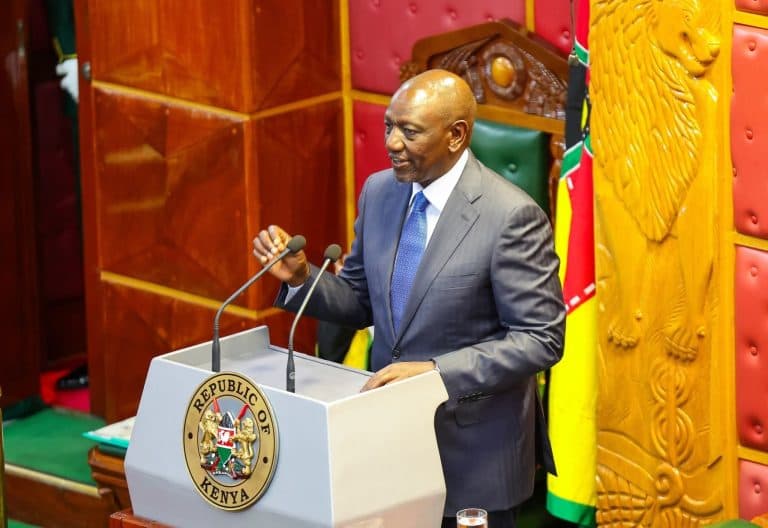We're loading the full news article for you. This includes the article content, images, author information, and related articles.
President William Ruto has outlined his administration's achievements and future priorities, but the focus now shifts to Parliament where his agenda faces rigorous debate amid economic headwinds and political division.

President William Ruto delivered his third State of the Nation address on Thursday, November 20, 2025, at a joint sitting of Parliament in Nairobi, fulfilling a key constitutional mandate. The speech, which began shortly after 2:30 PM EAT, provided a progress report on his government's agenda and set the tone for the upcoming legislative year, with a focus on economic transformation, security, and social welfare programs.
The address is a constitutional requirement under Article 132 of the Constitution of Kenya, which mandates the President to, once every year, report to the nation on the progress made in achieving national values, fulfilling international obligations, and the state of national security. Following the speech, the President's report is submitted to the National Assembly and Senate for debate, marking the beginning of a critical oversight process.
A central theme of the President's address was the state of the economy. He highlighted his administration's efforts to stabilize public finances and spur growth through the Bottom-Up Economic Transformation Agenda (BETA). However, the address comes against a challenging economic backdrop. In May 2025, the World Bank revised Kenya's economic growth forecast for the year down to 4.5%, citing concerns over high public debt, elevated interest rates, and a contraction in private sector credit. According to the World Bank, Kenya's public debt remains at high risk of distress, with interest payments consuming about a third of tax revenue. Private sector credit growth was reported at -1.4% in December 2024, indicating that businesses are struggling to access capital for expansion.
The President is expected to have detailed his government's strategy to manage this fiscal pressure, likely emphasizing increased domestic revenue collection and reduced reliance on external borrowing. These proposals will now be intensely scrutinized by parliamentary committees, which will analyze the reports and forward recommendations to relevant government ministries and departments for implementation.
The state of national security was another critical component of the address, as required by Article 132. The President reported on measures taken to combat terrorism, banditry, and other internal security threats. While a December 2024 report from the African Union's Counter Terrorism Centre noted a decline in terror-related incidents due to heightened security operations, threats persist. Terror groups like Al-Shabaab continue to pose a security challenge, particularly in counties bordering Somalia. Furthermore, a 2023 report by G4S, a global security company, indicated that corporations in Kenya anticipate facing some of the highest rates of security threats globally in 2024, including supply chain attacks and economic unrest. The President's report on this front will be deliberated by the relevant security and legal affairs committees in both houses of Parliament.
With the address concluded, the legislative process begins in earnest. Members of Parliament will debate the contents of the President's speech and the accompanying reports. This debate provides a platform for both sides of the political aisle to critique the government's performance, question policy directions, and propose alternative solutions. The United Opposition coalition, which boycotted the address, held a parallel briefing, accusing the administration of failing to address the high cost of living and other pressing issues. This division signals that the President's agenda will likely face significant pushback on the floor of the house.
Following the general debate, the specific reports on national values, international obligations, and security are handed over to specialized parliamentary committees. For instance, the report on international obligations is reviewed by the Foreign Affairs Committee, while security matters are handled by the Defence and National Security committees. These committees will conduct detailed analyses and may summon Cabinet Secretaries for clarification before presenting their findings and recommendations to the full House for adoption. The outcomes of these deliberations will shape the country's legislative and budgetary priorities for the coming year, making the post-address period a crucial phase for governance and accountability in Kenya.
Keep the conversation in one place—threads here stay linked to the story and in the forums.
Sign in to start a discussion
Start a conversation about this story and keep it linked here.
Other hot threads
E-sports and Gaming Community in Kenya
Active 9 months ago
The Role of Technology in Modern Agriculture (AgriTech)
Active 9 months ago
Popular Recreational Activities Across Counties
Active 9 months ago
Investing in Youth Sports Development Programs
Active 9 months ago